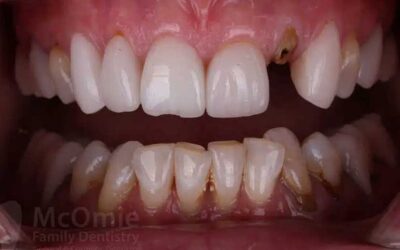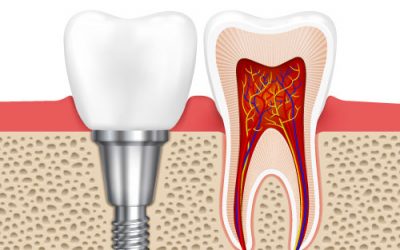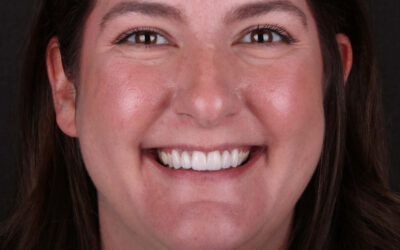Quick Summary
Denture stabilization uses 2-4 dental implants with special attachments that snap or clip onto your existing or new dentures, eliminating messy adhesives and reducing gum rubbing while restoring more natural chewing ability. The procedure typically involves installing implants under local anesthetic, with integration taking about three months before attaching the denture, though same-day attachment is sometimes possible. You can still remove your stabilized dentures at night for cleaning, and they can help delay bone loss while improving comfort and confidence when talking or smiling.
Key Takeaways
- Ask your dentist whether you need 2-4 implants based on your jaw shape and bone ridge, since the number varies by individual anatomy.
- Request information about same-day denture attachment options if you want to avoid the three-month waiting period between implant installation and stabilization.
- If your current denture is relatively new, ask whether it can be retrofitted with special locators underneath to save costs compared to creating a new prosthesis.
- Consider mini dental implants for same-day stabilization if your dentist determines you lack sufficient space for full-sized implants.
Do you struggle with getting your traditional dentures to fit comfortably throughout the day? Does wearing dentures cause sore spots in your mouth or limit what you can eat? If your loose dentures (“plates”) slip when you’re smiling or cause you to slur when talking to friends, you may need to consider implant-supported dentures to improve comfort and performance. Also called “overdentures” or “snap-on” dentures, these devices do not require single tooth implants at every missing tooth location. Only a couple of implants need to be installed for the denture to clip onto. This provides a more affordable and accessible alternative for denture wearers who may not want or qualify for full-mouth dental implants.
What Is Denture Stabilization?
Denture stabilization is when we pair dental implants with a new or existing denture. It holds your dentures firmly in place throughout the day, but you can still remove them at night. From the outside, your denture looks the same; the only difference is there are attachments underneath it.
How Denture Stabilization Works
When we stabilize dentures with dental implants, we create special attachments underneath the new or existing dentures that can “clip” or “snap” onto corresponding dental implants. With implants inserted at specific points in your mouth, they help to anchor your denture, improving chewing ability, comfort, and a more secure fit throughout the day.
Denture stabilization is not the same thing as permanent hybrid-style dentures or bridges, which are non-removable. Instead, these look like traditional dentures but have increased security throughout the day. Even if you do not have enough bone for conventional dental implants, denture stabilization is usually still an option. If you frequently rely on denture adhesives or messy pastes to keep your denture secure throughout the day, implants may be exactly what you’re looking for even though denture technology has improved over the years.
How Many Dental Implants Will I Need?
Most denture wearers only need 2-4 dental implants to stabilize their prostheses. Implant-supported dentures do not require the same number of implants as a conventional “All-on” implant system. Our Chattanooga implant dentist will want to evaluate the shape of your jaws and current bone ridge to determine how many implants are necessary. Since your implants are strictly stabilizing your “plates,” they do not need to be able to support the same amount of pressure as natural teeth.
Are Stabilized Dentures Comfortable?
Yes. When your new dentures snap onto a dental implant, it reduces rubbing and chafing on your gum tissues. And since the dentures aren’t slipping, you’ll feel more confident when it comes to talking or smiling in front of your friends. And then there are the many benefits like delayed bone loss when each dental implant is installed; this facet helps support your facial structures to slow premature aging (a common side effect of missing teeth.) Most discomfort is because of pressure or rubbing underneath your “plate.” Since implants eliminate both issues, they significantly improve your comfort throughout the day.
What Can I Eat With a Stabilized Denture?
A stabilized denture enhances your ability to chew and eat a wider variety of foods compared to a traditional denture. Although they don’t provide the same chewing power as natural teeth, they offer significant improvements. Traditional lower dentures are typically held in place by lip and cheek muscles, which can make eating certain foods a challenge. Implant-supported dentures, on the other hand, are anchored securely, restoring a more natural chewing ability and contributing to better digestion.
While adapting to your new stabilized dentures, it’s advisable to start with soft foods and gradually introduce firmer textures. Most individuals with implant-supported dentures can enjoy a similar diet to those with natural teeth, although cutting certain foods into smaller bites might be necessary. Remember that an adequate and balanced diet is key to overall health and well-being, and your stabilized dentures can play an essential role in helping you achieve this.
Do You Still Need to Take Them Out at Night?
Yes. You’ll want to care for your overdentures the same way you would a traditional one, with the added steps of brushing around each of your implants. It’s important that you don’t sleep in your appliance, as it could trap food or plaque underneath and lead to an oral infection. Plan to soak it in a denture cleanser overnight, then brush it clean the following day.
Why Choose Our Chattanooga Dentist for Your Denture Stabilization?
Are you a Chattanooga resident struggling with uncomfortable or ill-fitting dentures? Dr. McOmie at McOmie Family Dentistry has the solution you need to dramatically improve your quality of life. As a local expert in denture stabilization, Dr. McOmie specializes in a process that combines dental implants with your existing or new dentures to hold them securely in place. Say goodbye to sore spots, difficulty eating, and awkward moments when your dentures slip or shift.
With our local Chattanooga practice, you get personalized, close-to-home care every step of the way. Dr. McOmie understands our community’s unique needs and preferences and tailors his services to fit them. Whether enjoying a meal at a downtown restaurant or sharing a smile with friends at a family gathering, Dr. McOmie wants you to feel confident and comfortable.
Our Chattanooga implant dentist Dr. McOmie will personally assess your specific needs and create a customized care plan just for you. With us, you’re not just another patient—you’re a valued member of our community. Trust your smile to a local expert who truly cares about your happiness and well-being.
What To Expect
If you’re considering getting an implant retained denture made, our Chattanooga restorative dentist will create a custom care plan that outlines the entire process. Typically, we will schedule one appointment to install the implants. A small incision is all that’s needed, so local anesthetic to numb your mouth is usually more than adequate.
Depending on the situation, there are one of two outcomes. One, you allow the implants to integrate with the bone while you continue to wear your dentures as the gum tissues heal.
About three months later, we uncover each implant to attach a special abutment or ball-retained device, which your denture clips onto. With option two, we install the dental implants and immediately attach your overdenture. This eliminates the longer timespan between the implant installation and when the prosthesis starts “clipping” into place.
Other Treatment Options
Besides overdentures using traditional implants, other smile options include:
Mini dental implants
If there is not enough space to install a full implant, mini dental implants can be used instead. Same-day denture stabilization is usually possible because of their discreet size.
Retrofitting your current denture
Most of our Chattanooga patient’s stabilized dentures are made with a new prosthesis and attached to the corresponding implants. But if your denture is relatively new, we may be able to retrofit it by adding special locators underneath the base.
All-on-4 or All-on-6 Implants
Instead of a removable denture, a full-arch restoration can be permanently installed onto four or six implants placed throughout your jaw. These are more like dental bridges than conventional dentures.
Relining your current denture
To improve fit and comfort, older dentures can be adjusted or relined to provide a more tailored fit against your gum tissues.
Wear Dentures? Call Our Chattanooga Dentist
McOmie Family Dentistry offers snap-on attachments to keep your dentures firmly in place throughout the day. If you need a permanent solution to prevent mouth sores or loose dentures, our Chattanooga dentist can help. Contact our office today to discuss your options!




